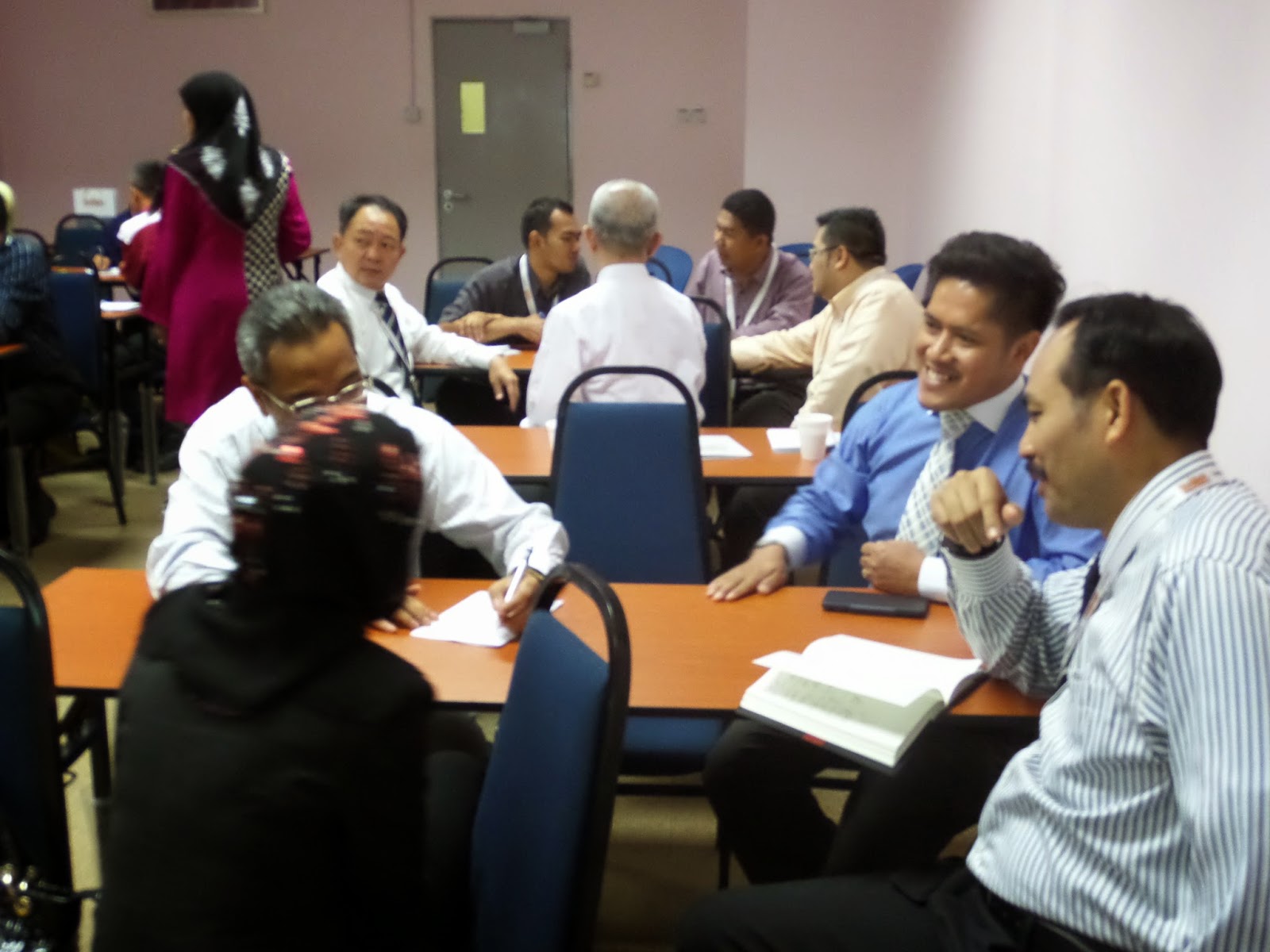Day One
We arrived London in the early morning of 9th April 2014. A total of thirty participants have registered for the Integrated Governance and Strategic Management Training Program 2014. The first day included London City tour and two very interesting training events: (i) A visit and talk on "Sharing How Institute of Education (IOE), University of London became a Leading Global Reference Centre in Education" and (ii) Leadership and Personal Development Talk by Ms Katrina A. Prentice, a leading business coach in the United Kingdom. The visit to IOE was arranged by the Malaysian Higher Education Leadership Training Academy (AKEPT). The Institute of Education is a world-leading university specialising in education and the social sciences.
Founded in 1902, the Institute currently has more than 7,000 students and 800 staff. In January 2014, the Institute was recognised by Ofsted for its 'Outstanding' initial teacher training across primary, secondary and further education. In the 2014 QS World University Rankings, the Institute was ranked number one for education worldwide. In the most recent Research Assessment Exercise two-thirds of the publications that the IOE submitted were judged to be internationally significant and over a third were judged to be "world leading". In the evening, after dinner at the Malaysian Student Department, the delegates welcome Ms Katrina A. Prentice for her stunning talk on "Leadership Styles of Successful and Effective Leaders". Katrina has been designing and delivering bespoke business solutions for a broad spectrum of clients within the UK, Ireland, Europe, Africa, South Africa and the Middle East for over 15 years.
Her dynamic, powerful and charismatic style has enabled her to lend her skills and expertise as a Business Strategist, Trainer, Keynote Speaker and Executive Coach to a variety of clients including Vice Presidents,Ambassadors and key political figures to global public listed companies, SMEs and micro-businesses. Delegates were told that typically, an effective leader would motivate his or her subordinates to work on their strengths. Such leader often "listen more" and "read more" as a way of continously improve his or her organisation.
Founded in 1902, the Institute currently has more than 7,000 students and 800 staff. In January 2014, the Institute was recognised by Ofsted for its 'Outstanding' initial teacher training across primary, secondary and further education. In the 2014 QS World University Rankings, the Institute was ranked number one for education worldwide. In the most recent Research Assessment Exercise two-thirds of the publications that the IOE submitted were judged to be internationally significant and over a third were judged to be "world leading". In the evening, after dinner at the Malaysian Student Department, the delegates welcome Ms Katrina A. Prentice for her stunning talk on "Leadership Styles of Successful and Effective Leaders". Katrina has been designing and delivering bespoke business solutions for a broad spectrum of clients within the UK, Ireland, Europe, Africa, South Africa and the Middle East for over 15 years.














